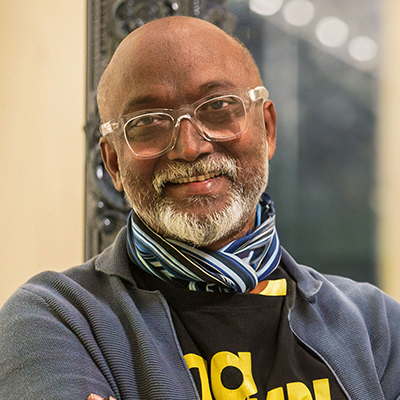
Bose Krishnamachari
Indian Painter and Art Curator
Artist, Curator and Scenographer Bose Krishnamachari is a celebrated figure in the contemporary art scene of India. His work and exhibitions have been shown nationally and internationally in a diversity of contexts. He co-founded the Kochi Biennale Foundation in 2010, and ideated and co-curated first Kochi-Muziris Biennale that opened to the public on 12/12/12.
He also curated the first edition Yinchuan Biennale ( MoCA) in 2016. Krishnamachari is well known for his patronage and care towards younger generation of artists and curators.
He is been awarded by the Kerala Lalitha Kala Academy, British Council, Bombay Art Society, Charles Wallace Trust, United States Information Society, Forbes, India Today, Trends, FHM, GQ Men of the Year and many laurels to his credit. He has been included in the Art Review Power 100, a global list of most influential people in the art world, including 2023.